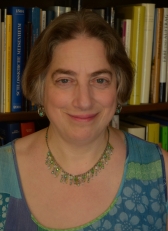Digital Medieval Studies Institute (DMSI) 2025
Wednesday, March 19, 2025, 8:30-17:00
Cambridge & Boston, Massachusetts
![Logo of Digital Medieval Studies Institute]()
Sponsored by Harvard University, Boston College, McMullen Museum, Research Group on Manuscript Evidence, and Digital Medievalist
Organizers: Laura K. Morreale and N. Kıvılcım Yavuz
Call for Participation
In cooperation with Harvard University, Boston College, McMullen Museum, Digital Medievalist, and the Research Group on Manuscript Evidence, the third annual Digital Medieval Studies Institute (DMSI) presents a one-day program featuring workshops on digital scholarly methods specifically tailored for medievalists.
The day will begin with a lecture on data methods by Gabriel Pizzorno (Senior Preceptor on History and Faculty Chair, Digital Scholarship Support Group, Harvard University), entitled “Building on Solid Foundations: The Importance of Data Structures to Digital Scholarship.” Lightning talks by a selected number of participants will follow. After lunch, five separate concurrent workshops will be offered, each with a total teaching time of 4 hours. The day will conclude with a reception at the McMullen Museum at Boston College.
For the lightning talks, workshop participants can propose a short presentation (lightning talk )on any aspect of digital medieval studies, such as an ongoing project, a methodology, or a specific research finding; the topic of the lightning talk does not have to be the same as the workshop in which the participant enrolls. Participants will be able to present a lightning talk only if they are accepted to attend the full-day program.
Each participant may choose one of the following workshops. Unless indicated, all workshops will take place at Boston College’s McMullen Museum, with transportation from Harvard to the Museum provided.
Rendering Spaces Virtually Using Photogrammetry (Rachel Chamberlain)
Participants will explore the various uses of photogrammetry, particularly in capturing interiors to display virtually. You will learn to photograph a space, stitch it together, and layer multiple forms of media on top to provide a rich, immersive experience to digital visitors.
Rendering 3D Artifacts for Virtual Exhibits Using Photogrammetry (Antonio LoPiano)
Photogrammetry is a powerful and flexible technology for the capturing, digitization, and visualization of 3D artifacts, especially in the context of rendering them for use in virtual exhibits or repositories. Participants will learn how to capture images of an artifact, use the Metashape photogrammetry software to process images, and export the resulting models for use in virtual environments.
Mapping Humanities: The Medieval Version (Kahil Sawan)
This workshop explores various mapping methods used in medieval digital humanities. Participants will be introduced to GIS (Geographic Information Systems), geo-referencing, and spatial data. You will learn how to use tools that will enable you to integrate geography and digital mapping into your own research projects.
Networking Old English Charters Using Gephi (David Thomas)
Network analysis enables scholars to untangle patterns of relationships in historical documents whose complexity is beyond human comprehension. Participants will use the network analysis tool Gephi to analyze and visualize the relationships of over 2,500 individuals who appear in over 500 charters from Old English kingdoms, from the seventh to the ninth centuries, zeroing in on major figures.
Digitizing Manuscripts (Anthony Harris & Sara Powell)
In this interactive workshop on the essentials of manuscript digitization, participants will learn how to capture the textual and material aspects of medieval fragments. You will gain hands-on experience working with Houghton Library’s fragments, collaborating to select, describe, scan, and prepare items for upload to a digital repository. This workshop will take place at the Houghton Library.
All registered participants will be charged a fee of $100 to participate in DMSI 2025
Applications are open to everyone, but preference will be given to applicants who demonstrate how they plan to apply what they learn in their research, teaching, or professional practice. A maximum of 8-10 participants will be accepted into each workshop. It will only be possible to enroll in one workshop. We are offering a small bursary for 5 participants (one per class) to cover the participation fee; the bursary is needs-based.
To apply, please fill out the DMSI 2025 application form, which will require the following:
- Contact information
- Two-paragraph statement of interest specifying the three workshops you are most interested in participating (in order of preference) and explaining how you plan to incorporate the skills and knowledge gained at DMSI into your current work.
- Concise CV (maximum 1 page).
- Optional:
- If the applicant would like to propose a short presentation, a title and a 200-word abstract,
- If the applicant would like to apply for a bursary, a brief indication of financial need (no documentation, please). The bursary will cover the $100 cost of participation ONLY (no funds are available for travel or accommodation).
PLEASE NOTE: Workshops will be filled on a first-come, first-served basis. Applicants will be admitted to each workshop on a rolling basis.
First round of applications are due by January 30, 2025.
Please note that the cost of lodging is not covered in the institute fee, and individuals arriving in for DMSI should be prepared to make arrangements for accommodations accordingly.
For all questions and/or concerns, please contact the organizers at dmsi.hello@gmail.com.

 Editor of Speculum
Editor of Speculum

